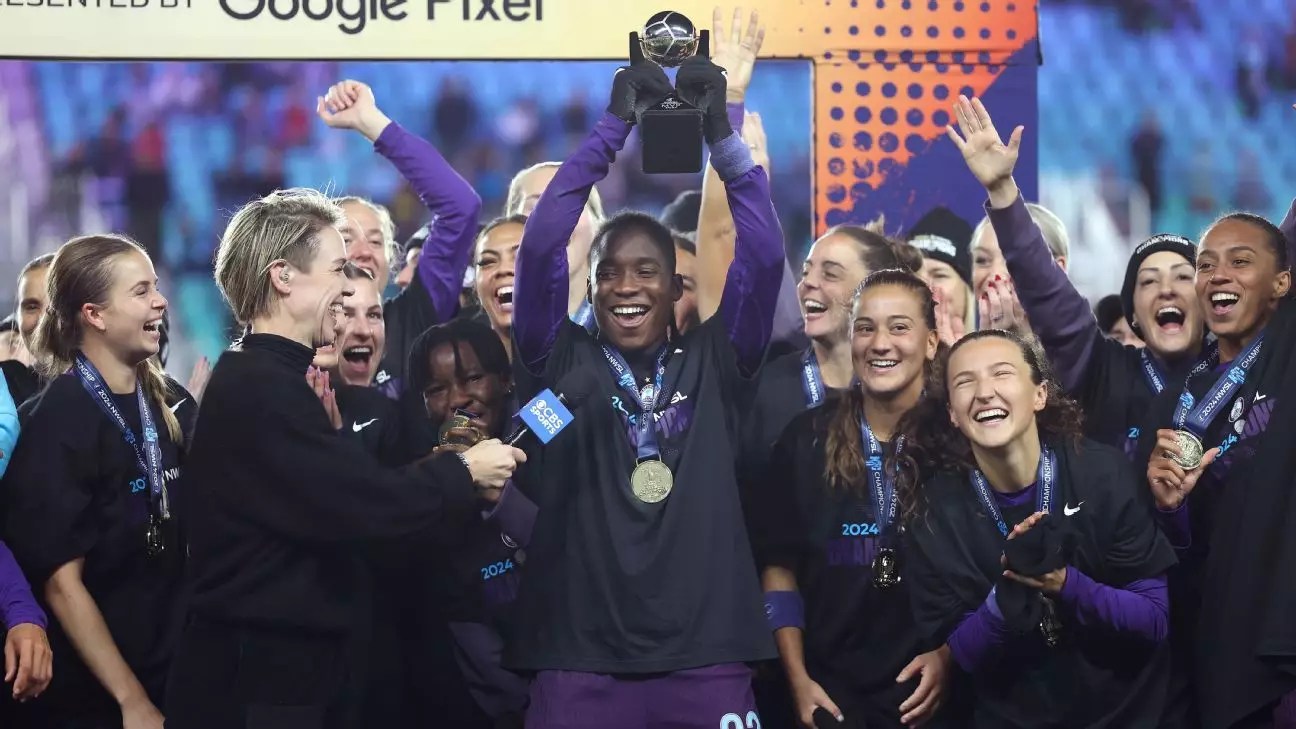Every year, African football enthusiasts hold their breath in anticipation of the CAF Awards, a celebration dedicated to honoring the pinnacle of talent within the continent. This year’s ceremony, set for December 16, 2024, at the Palais des Congrès in Marrakech, Morocco, promises to bring together stars from the footballing world in a grand spectacle. The excitement surrounding the event is tangible, especially with standout nominees such as Ademola Lookman and Barbra Banda in contention for the coveted titles of African Footballer of the Year.
Since its inception in 2000, the CAF Awards, orchestrated by the Confederation of African Football, have evolved significantly. Initially focusing on individual accolades, the ceremony now recognizes a wider array of contributions to the sport, with 15 awards distributed; seven for female players, seven for male players, and one for the goal of the year. Such expansion underscores a growing appreciation for female athletes in football, aligning with broader global trends recognizing women’s contributions in sports.
Scheduled to commence at 19:00 Moroccan time (18:00 GMT), the event will kick off with a red carpet filled with the continent’s best players and officials arriving to celebrate their achievements. Media coverage promises to be extensive, as last year’s event saw over 20 broadcasters, with SuperSport airing the highlights across multiple regions. Fans are eager to tune in, flocking to CAF’s official platforms, where previous awards have been accessible via live streams, ensuring a broad reach across the African diaspora.
However, an intriguing aspect of the awards is the voting process itself. Contrary to popular belief, the general public is largely excluded from the decision-making process, with the notable exception being the CAF Goal of the Year award, where fans can vote on a shortlist of goals. The complexities within this voting system could spark discussions on inclusivity and the representation of fan voices within this prestigious event.
The roster of nominees remains an essential highlight, particularly in the male and female categories. In the women’s category, Barbra Banda stands out as a frontrunner, celebrated for her stellar performance with the Orlando Pride in the NWSL, which culminated in both a championship win and the MVP award. Her journey is emblematic of the rising talent in women’s football, inspiring many young aspiring athletes across Africa.
On the male side, Ademola Lookman’s name resonates with many fans as he garners attention for his impressive stint with Atalanta in Italy’s Serie A. His performances have not only solidified his reputation in club football but have also made him a key player for Nigeria. Notably, Lookman’s journey follows a lineage of iconic Nigerian footballers who have previously won the African Footballer of the Year award, and a victory for him would mark another significant moment in Nigerian football history.
The absence of established stars like Mohamed Salah and Sadio Mané from this year’s shortlist offers a refreshing twist. Rather than a repeat winner, the 2024 ceremony is poised to crown a new face in African football, showcasing the burgeoning talent across the continent and underscoring a shift in the guard.
Apart from recognizing individual brilliance, the CAF Awards serve a broader purpose by promoting unity and solidarity within African football. The celebration of these players and their achievements enhances the African narrative in the global sports landscape, spotlighting the vast talent that often remains underrepresented.
Moreover, as the awards continue to evolve, there is a significant opportunity to bridge gaps between men and women in sports recognition. The establishment of parallel awards for female and male players highlights CAF’s commitment to advancing women’s football, though there is a long way to go in achieving equity in visibility and accolades.
Overall, the CAF Awards are more than a mere recognition of talent; they represent a celebration of culture, resilience, and the beautiful game that unites millions across Africa. As anticipation builds for the 2024 ceremony, it’s clear that the spirit of African football is alive and thriving, ready to shine under the limelight of recognition and celebration. For players, coaches, and fans alike, the CAF Awards serve as a reminder of the strides made and the journey ahead in the quest for excellence in African football.


Leave a Reply